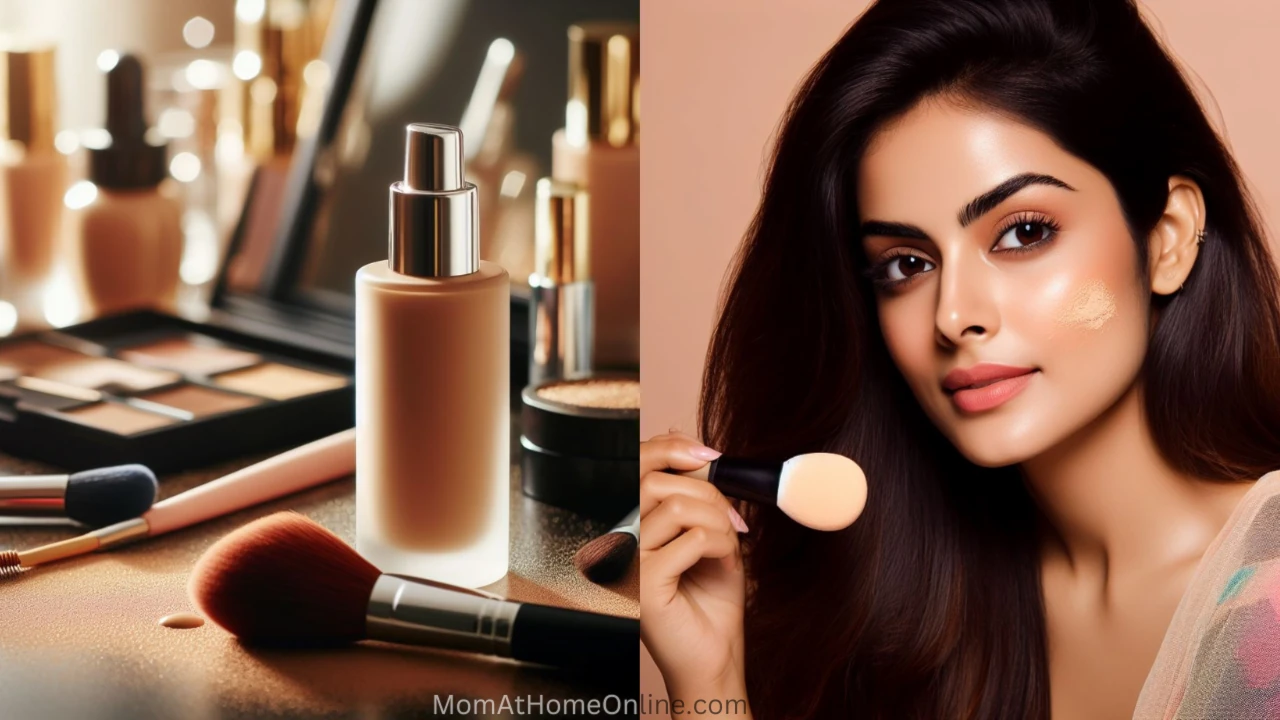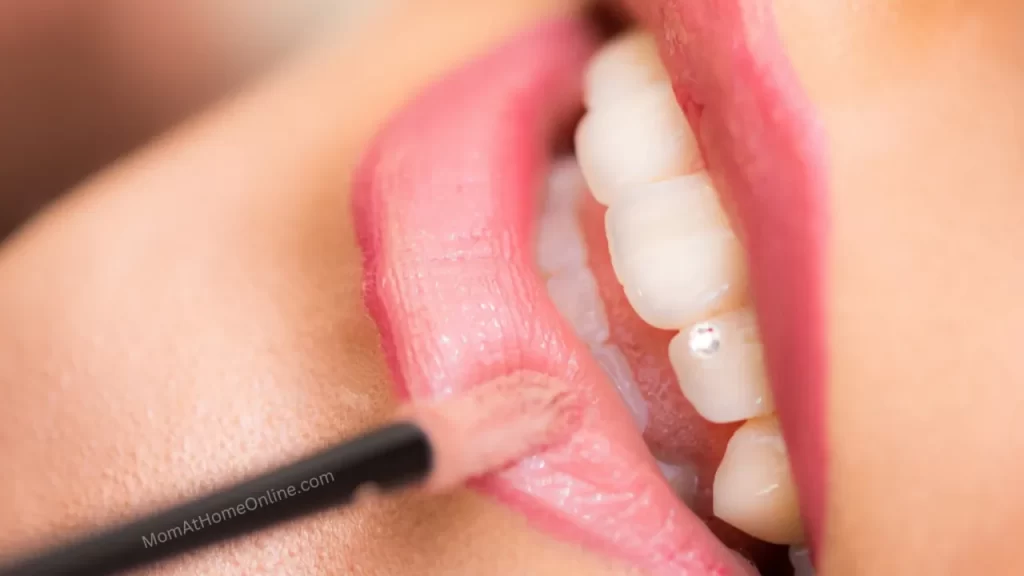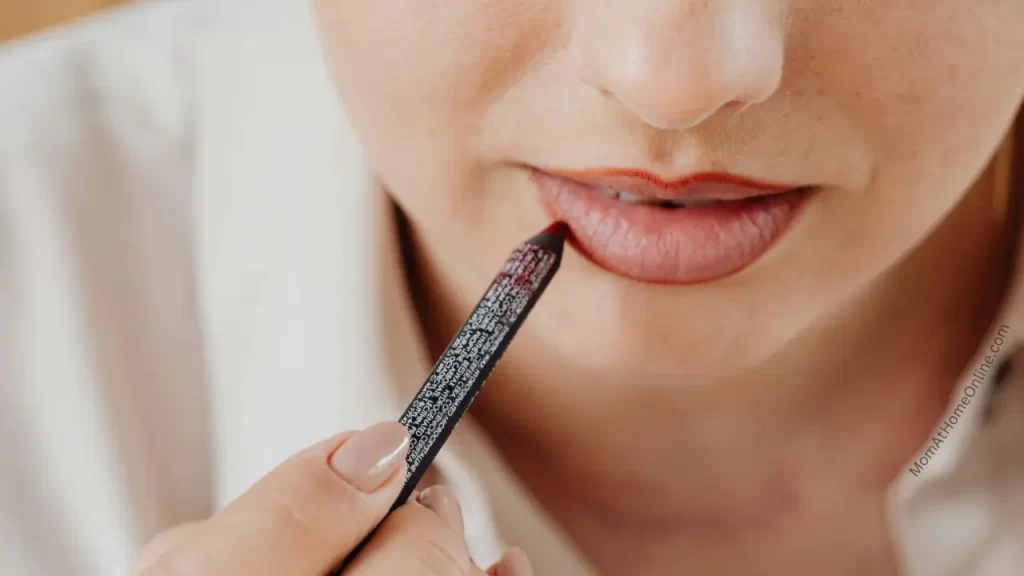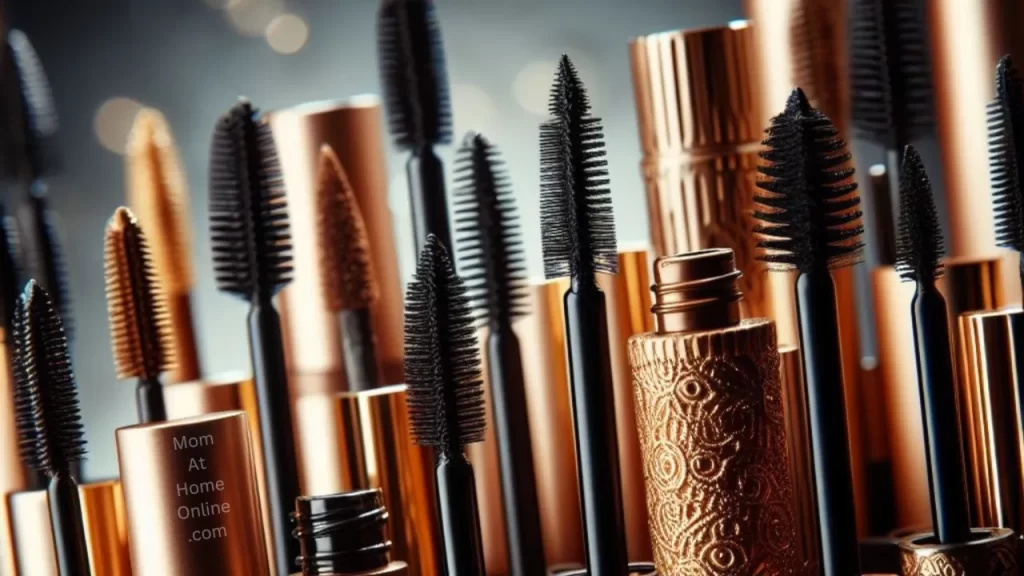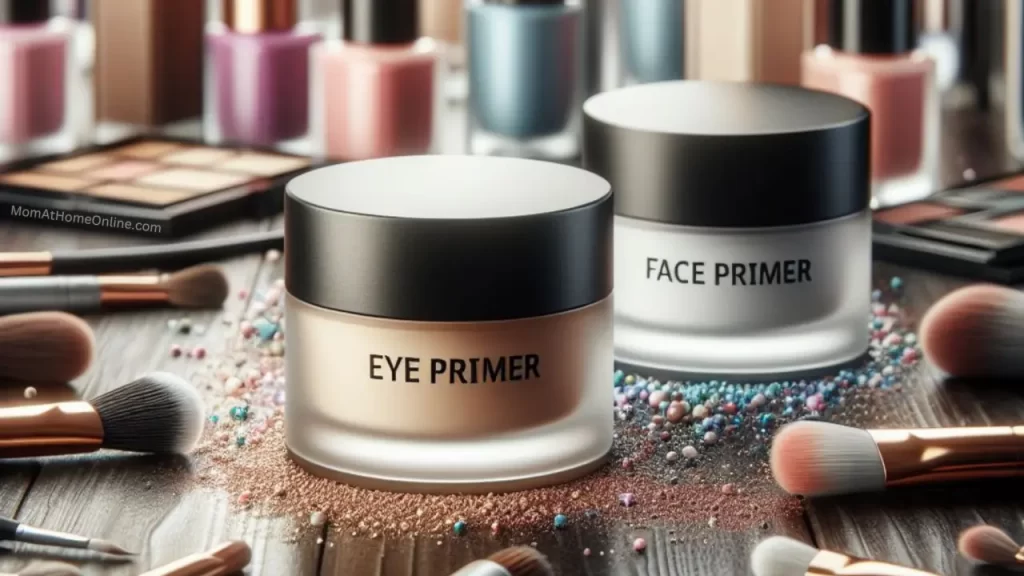- Introduction
- What Is Makeup Foundation Oxidation And Why Does It Happen
- How To Tell If Your Foundation Has Oxidized And What It Looks Like
- Common Causes Of Foundation Oxidation And How To Avoid Them
- How To Prep Your Skin
- How To Choose The Right Makeup Foundation
- How To Apply Your Makeup Foundation
- How To Fix Your Oxidized Makeup Foundation
- Conclusion
- Frequently Asked Questions (FAQs)
- Question For You
- Author
Introduction
Have you ever applied your makeup foundation in the morning, only to find that by the afternoon it has turned orange, pink, or gray? If this sounds familiar, you might be suffering from a common makeup problem: foundation oxidation. We’ll see here why does foundation oxidize.
Foundation oxidation is when your makeup foundation reacts with the air, your skin’s oils, or other products and changes color. It can make your skin look dull, uneven, or unnatural. It can also affect your confidence and make you feel like you need to redo your makeup.
But don’t worry, there are ways to prevent foundation oxidation and keep your makeup looking fresh and flawless all day long. In this article, we’ll explain why does foundation oxidize, how to tell if your foundation has oxidized, and how to avoid it with some simple tips on skin prep, foundation selection, application, and fixing.
What Is Makeup Foundation Oxidation And Why Does It Happen
Makeup foundation oxidation is a chemical reaction that occurs when your makeup foundation comes into contact with oxygen or other substances. This can alter the pigments in your foundation and make them change color.
There are several factors that can trigger foundation oxidation, such as:
1 – Your Skin Type
If you have oily or combination skin, your natural oils can mix with your foundation and cause it to oxidize faster. Your skin’s pH level can also affect how your foundation reacts with oxygen.
2 – Your Skincare Products
Some ingredients in your skincare products can interfere with your foundation and make it oxidize. For example, products that contain alcohol, acids, or vitamin C can cause oxidation.
3 – Your Environment
Exposure to heat, humidity, sunlight, or pollution can also speed up the oxidation process. These factors can make your skin produce more oil or sweat, which can dilute or break down your foundation.
4 – Your Foundation Formula
Some foundations oxidize more easily than others. For example, liquid foundations tend to oxidize more than powder foundations because they contain more water and oil. Foundations that have SPF or antioxidants can also oxidize faster because they react with oxygen more easily.
How To Tell If Your Foundation Has Oxidized And What It Looks Like
The easiest way to tell if your foundation has oxidized is to compare it with your neck or chest. If your face looks darker or different in tone than the rest of your body, chances are your foundation has oxidized.
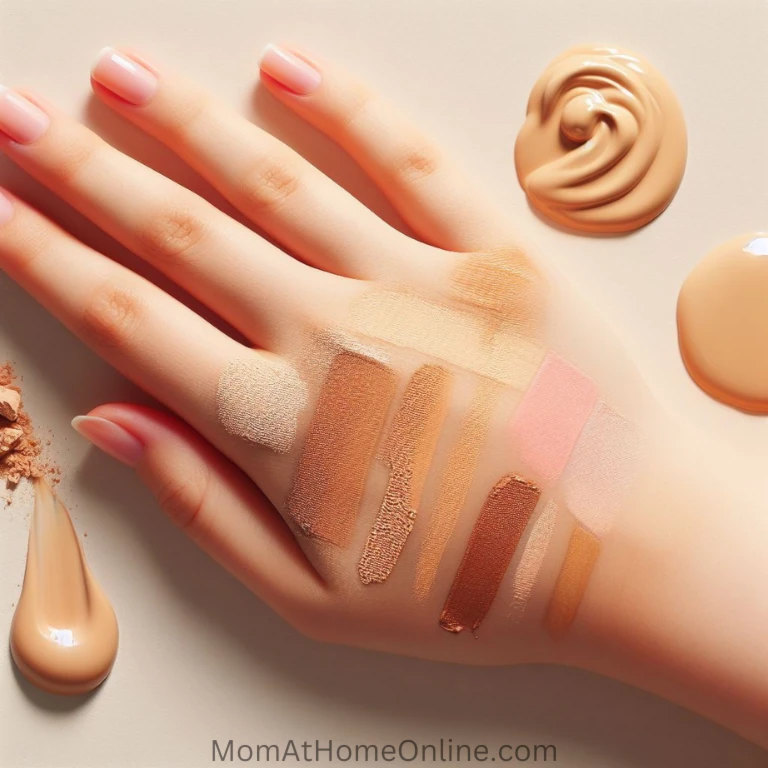
Depending on the type of pigments in your foundation and how they react with oxygen or other substances, your foundation can oxidize in different ways. Here are some common signs of foundation oxidation, based on the color it turns into
Your Makeup Foundation oxidizes and turns into Orange when the iron oxide in your foundation oxidize and become darker or warmer in tone. This can make your skin look too tan or orange.
Your Makeup Foundation oxidizes and turns into Pink when the titanium dioxide in your foundation oxidizes and becomes lighter or cooler in tone. This can make your skin look too pale or pink.
Your Makeup Foundation oxidizes and turns into Gray when the zinc oxide in your foundation oxidizes and becomes duller or ashier in tone. This can make your skin look too flat or gray.
Common Causes Of Foundation Oxidation And How To Avoid Them
Now that you know what causes foundation oxidation and how to spot it, let’s look at some ways to prevent it from happening in the first place. Here are some common causes of foundation oxidation and how to avoid them:
1 – Your Skin Type
If you have oily or combination skin, you need to control your oil production and balance your skin’s pH level. You can do this by using a gentle cleanser, a toner, and a moisturizer that is suitable for your skin type. Also, you can use a primer that is oil-free and mattifying to create a smooth and even base for your foundation. You can also blot your face with blotting papers or powder throughout the day to absorb excess oil and refresh your makeup.
2 – Your Skincare Products
If you use skincare products that contain alcohol, acids, or vitamin C, you need to wait for them to fully absorb into your skin before applying your foundation. You can also use a primer that creates a barrier between your skin and your foundation and prevents them from mixing. You can also avoid using too many layers of skincare products or using products that are too heavy or greasy for your skin type.
3 – Your Environment
If you live in a hot, humid, sunny, or polluted area, you need to protect your skin and your foundation from the elements. You can do this by using a sunscreen that is compatible with your foundation and doesn’t cause oxidation. Also, you can use a setting spray that seals your makeup and makes it last longer. You can also avoid touching your face or rubbing your makeup off with tissues or clothes.
4 – Your Foundation Formula
If you use a foundation that is prone to oxidation, you need to choose a different one that is more stable and resistant to oxidation. You can do this by looking for foundations that are oil-free, water-based, mineral-based, or silicone-based. These types of foundations tend to oxidize less than foundations that are oil-based, cream-based, or liquid-based. You can also choose a foundation that is slightly lighter than your skin tone so that if it does oxidize, it won’t look too dark or noticeable.
How To Prep Your Skin
One of the most important steps to prevent foundation oxidation is to prep your skin properly before applying your makeup. Here are a few suggestions for preparing your skin:
-
Cleanse your face with a gentle cleanser that removes dirt, oil, and makeup without stripping your skin of its natural moisture.
-
Tone your face with a toner that balances your skin’s pH level and prepares it for the next steps.
-
Moisturize your face with a moisturizer that hydrates and nourishes your skin without making it too oily or greasy.
-
Prime your face with a makeup primer that smooths out your pores, fine lines, and texture and creates a flawless base for your foundation. Choose a primer that is suitable for your skin type and matches your foundation formula.
How To Choose The Right Makeup Foundation
Another crucial step to prevent foundation oxidation is to choose the right makeup foundation for your skin type, tone, and preference. Makeup Foundation is one of the key items of your essential makeup kit. Here are some tips on how to choose the right makeup foundation:
1 – Know Your Skin Type
Different foundations work better for different skin types. For example, if you have oily or combination skin, you might want to choose a foundation that is oil-free, mattifying, and long-wearing. If you have dry or normal skin, you might want to choose a foundation that is hydrating, dewy, and moisturizing.
2 – Know Your Skin Tone
Different foundations suit different skin tones. For example, if you have warm undertones (yellow, golden, or peach), you might want to choose a foundation that has warm undertones as well. If you have cool undertones (pink, red, or blue), you might want to choose a foundation that has cool undertones as well. If you have neutral undertones (a mix of both), you might want to choose a foundation that has neutral undertones as well.
3 – Know Your Preference
Different foundations offer different levels of coverage, finish, and feel. For example, if you want a natural-looking coverage that lets your skin breathe, you might want to choose a tinted moisturizer or a BB cream. If you want a medium-to-full coverage that covers up imperfections and lasts all day, you might want to choose a liquid or cream foundation. If you want a sheer-to-medium coverage that sets quickly and feels lightweight, you might want to choose a powder or mineral foundation.
How To Apply Your Makeup Foundation
Here are some tips and tricks that you can follow for applying makeup foundation to prevent or minimize makeup foundation oxidation.
-
Apply less foundation and blend well. When it comes to foundation application, less is more. You only need a thin layer of foundation to cover any imperfections and even out your skin tone. Applying too much foundation can make it look cakey and unnatural, and also increase the chances of oxidation. Make sure to blend your foundation well with a sponge, brush, or fingers, so that there are no harsh lines or streaks.
-
After applying your foundation, use a setting powder or spray. A setting powder or spray can lock in your foundation and prevent it from sliding off or changing color throughout the day. It can also absorb any excess oil or moisture on your skin that can cause oxidation.
How To Fix Your Oxidized Makeup Foundation
Sometimes, despite following all the tips above, you may still end up with an oxidized makeup foundation. Don’t worry, there are some ways that you can fix it without having to remove and reapply your makeup. Here are some of them:
-
Use a blotting paper or tissue to dab away any excess oil or sweat on your skin. This can help reduce the shine and darkness caused by oxidation.
-
Use a concealer or powder that matches your skin tone to cover any areas that have oxidized. You can use a small brush or sponge to apply the concealer or powder lightly over the oxidized areas, blending well with the rest of your makeup.
-
Use a bronzer or blush to add some warmth and color to your face. Sometimes, oxidation can make your face look dull and flat. You can use a bronzer or blush to add some dimension and glow to your face, making it look more lively and natural.
Conclusion
Now you know why the foundation oxidizes. It is a common problem that many people face, but it doesn’t have to ruin your makeup look. By following the tips above, you can prevent or fix makeup foundation oxidation, and enjoy a flawless and long-lasting makeup look.
Frequently Asked Questions (FAQs)
What is makeup foundation oxidation?
Makeup foundation oxidation is a chemical reaction that occurs when the ingredients in your foundation react with the oxygen in the air or with the oils and sweat on your skin. This can change the color and texture of your foundation, making it look darker, orange, or patchy.
What causes makeup foundation oxidation?
Many factors can cause makeup foundation oxidation, such as the pH level of your skin, the type of foundation you use, the ingredients in your foundation, the amount of foundation you apply, and the way you store your foundation.
How can I prevent makeup foundation oxidation?
You can prevent makeup foundation oxidation by choosing the right shade and type of foundation for your skin tone and type, using a primer before applying your foundation, using a setting powder or spray after applying your foundation, applying less foundation, and blending well, and storing your foundation in a cool and dry place.
How can I fix makeup foundation oxidation?
You can fix makeup foundation oxidation by using a blotting paper or tissue to dab away any excess oil or sweat on your skin, using a concealer or powder that matches your skin tone to cover any oxidized areas, and using a bronzer or blush to add some warmth and color to your face.
Can the season or weather affect makeup foundation oxidation?
Yes, the season and weather can influence makeup foundation oxidation. Exposure to heat, humidity, sunlight, or pollution can speed up the oxidation process, causing your foundation to change color. During hot and humid weather, it’s essential to take extra precautions like using a compatible sunscreen, setting spray, and adjusting your skincare routine to minimize the impact of environmental factors on foundation oxidation.
Question For You
-
Do you have any other tips or tricks to prevent or fix makeup foundation oxidation?
Please feel free to share your answer in the comment box below.
Thank you for reading this blog post. I hope you found it informative and useful. I would love to hear your thoughts and opinions on this topic. Please leave a comment below and share your feedback, suggestions, questions, or anything else you want to say. I appreciate your support and engagement.
Author
Co-founder of Mom At Home Online, MBA (HR, Marketing), Blogger, Content Creator, Ex-Representative of Avon Beauty Products, Ex-Private Tutor, Experienced Music Teacher with 2 Diplomas, Trained Yoga Enthusiast, Movie Lover, and Traveler. Read more about us…
Last Modified Date:
